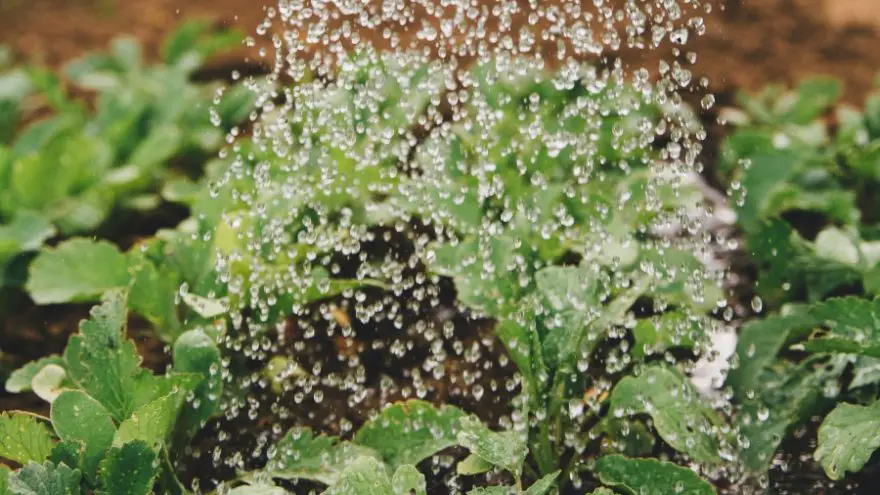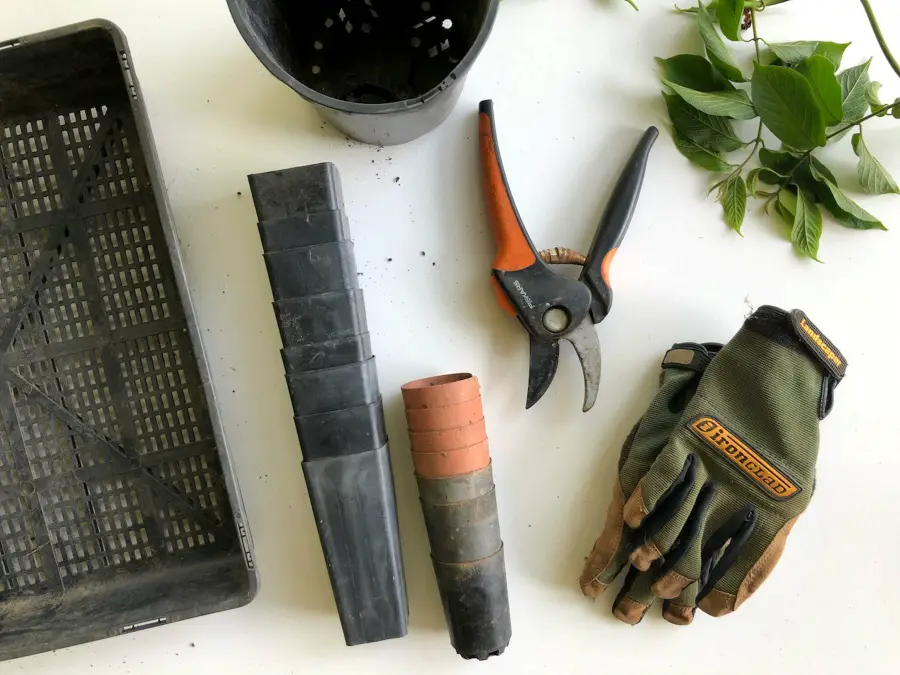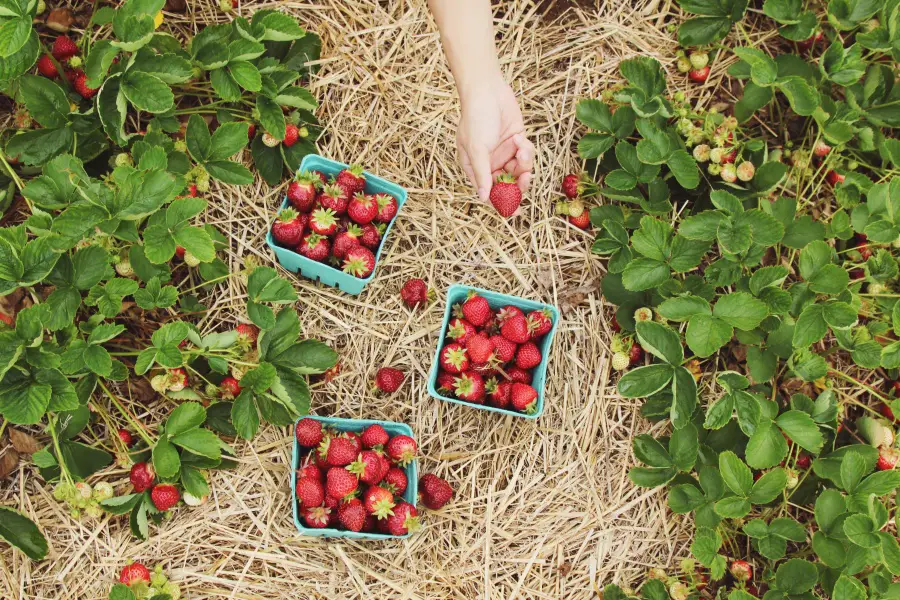What Kids Can Learn From Growing Their Own Food

This is the time of the year when it’s time to start planting a garden. Whether you live on a large farm or have a rooftop in a huge city to grow a few vegetables, it might be time to teach that little one of yours about the importance of growing their own food. It’s a great science experiment and kids love to play in the dirt and they can watch a seed grow from being planted in the dirt with a little water daily and turn into a huge head of broccoli or a tomato plant depending on how much space you have to work with. If you don’t have a lot of space, you can always teach them how to sprout seeds with just using a wet piece of paper toweling and putting some wheat seeds on the bottom of the wet towel and put another wet towel on top and in a few days your seeds will sprout into what is called wheatgrass. Take a foil pan and put good dirt from the garden store in the pan and watch the wheatgrass grow. Wheatgrass is great for blood and circulation because your body is actually drinking chlorophyll, once you pick the grass and add water and blend the wheatgrass up. People that live in the Himalayas have lived to be well over one hundred years old because of wheatgrasses healing properties. Grab a book about wheatgrass and try sprouting some seeds if you are cramped for space.
A child’s nutrition is very important when they are young because their bodies are developing rapidly. Store produce contains many chemicals and processed food is high in sugar and salt and calories. Don’t start your kids off eating junk food because it’s a bad habit they will do for the rest of their lives. This may lead to health problems like obesity, high blood pressure, diabetes, and cancer.
Whole Foods
Your child needs fresh whole foods and most cities and towns have farmers markets in the area that have certain days they sell their produce. This can be expensive if the produce is organic because it’s costlier than conventional produce. This also takes time to find the market and drive to it, push your way through the masses in order to get the best produce during the few hours the market is open.
Grow your own Food
You can grow your own food on a small scale, regardless of time, space, cash and know how. You can also ask your kids to help you grow food but it’s one of the best experiences your child will have. Growing food teaches children responsibility for living things on this planet. They learn how great different vegetables can taste, and this teaches them to be self-sufficient when times are tough and not to rely on large grocery chains for their produce. They may not be able to grow everything they need to have a well-balanced diet, but every time they do eat something they grew, they will realize the importance that this food is healthier for them as they are growing into young adults. Freshly grown produce is also healthier and tastier than anything they will find at the store.
 Myths
Myths
One of the myths about gardening is it takes up too much space, but this isn’t true. People don’t need a bunch of lands, you can grow food in containers, recycled plastic milk cartons are good to start with. You can also use planters, pails or buckets. Some people purchase storage bins and use the lids as drip trays underneath when they water their seeds. You have to make some holes for the water to drain and using a drill is a good way to make those. The second myth is this is too time-consuming. Everything else is time-consuming too so it’s a matter of putting your important priorities first. The well being of your family should be your top priority and think of all the time you waste on the telephone or on your device. Things that don’t produce good results are a waste of time so if you want to improve the quality of your family’s life, then cut out the time-wasting habits and bring in the priorities.
There are always ways to cut maintaining your garden in half time-wise, so follow some routines and take about 15 minutes after dinner and take your children and work on the garden. Maybe there will be a fresh melon for breakfast that is ripe. In addition, make it a habit to take an hour on the weekends and work on some weeding. You can also save time by using a water system that is efficient, use heavy mulch so you don’t have to weed and grow your own seeds instead of traipsing to the nursery for transplants and wasting gas and time.
The third myth is gardening is expensive but if you look at all of the national disasters and see how this has driven up the costs on organic produce, buying some seeds, soil or fertilizer that might cost you around 85 bucks, will save your family more cash in the long run. Then you can use the savings to buy the items that you do need from the store.
You can also save money by going to The Dollar Tree and buying plastic containers or reusing old containers that are clean to start growing your seeds or store the fruits of your labor. You can try chopsticks for digging holes, and separating the new transplants. Try newspaper and cardboard for mulch and try to find free wood chips from a local arborist for mulch as well. They also don’t cost that much when you go to the gardening center at any large hardware store. The Dollar Tree also sells seeds as well and everything is a buck.
Try saving the seeds from the best of your plants so you don’t have to buy them every year. Make your coffee at home instead of paying 5 bucks for a cup of coffee from chain coffee stores. Make your own salads with your vegetables instead of buying one for lunch daily and all this extra cash will add up and here is your extra cash for growing your family’s produce.
The 4th myth is store-bought food is of better quality. The produce in the store might look shiny and perfect but how does it get that way? Chemical pesticides are the answer because it kills the pests that eat holes in the apples and other produce. If you are truly interested in watching what your family eats, then grow your own produce. Maybe your product isn’t perfect because it might have a few holes in it or some bites from animals or slugs but at least you know your food doesn’t have the harmful chemicals that cause cancer on it. When produce looks that perfect then you know that it’s smothered in chemicals that are harmful. Your produce is healthy so even the pests love it.
Imperfect produce from your garden
If your fruit isn’t perfect, use it for applesauce, jelly, and jams or even juices. If you have a bunch of extra lettuce, take the old and rotten leaves if something chewed on it and throw it out. You will find the same thing in the store with expensive lettuce so what’s the difference except for the price.
 Where does one start?
Where does one start?
The nice thing about the 21st century is there are so many resources to go to that are instantly at the tips of your fingers with social media. You can read blogs, look at seed books and catalogs, watch youtube videos, join a Facebook group on gardening, look at gardening forums, go to your local nursery or garden center, take a class, ask your neighbors, friends, and family, take a horticulture class, classes are free for people over 60 at State Universities and their government extensions, read some gardening books or try an ebook.
Last but not least, you might be able to use the experience you have by just trying something new. Try experimenting because by trying gardening out, you will gain more confidence and learn more valuable information. Learning is something in life that continues forever. You can be ecstatic with your successes and learn from your mistakes. This is how your children learn and this is how you have gathered all of your life experiences so why not get the family and plant a garden this summer even if you just sprout some seeds. You can also sprout all types of nuts and get a dark-colored mason jar and sprout legumes as well. Put a screen cover on the jar and rinse your sprouted nuts, seeds and legumes with water. This process removes the fat from the nuts and yes you can sprout cashews as well. This makes a tasty meal that is rich in protein and low in fats. Add this mixture to your homegrown lettuce with a few hydroponic tomatoes and you have a great summer meal. Try some of your favorite dressing and it tastes great. This is very healthy for your family and uses raw nuts for any type of sprouting along with wheat or rye seeds and you have a variety of your daily intake of vitamins and minerals with a serving of this uniques salad that your family helped you sprout. The people that live in different mountainous areas around the world have diets like this and live to be around 130 years old.






